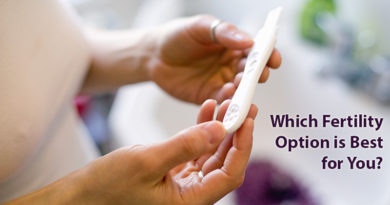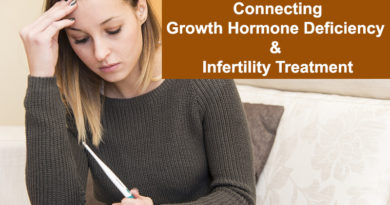Female Infertility: Causes, Treatment and Prevention
Infertility may be suspected if pregnancy does not occur within 12 months of a regular sexual life without the use of contraception. For women over 35 years, this period is reduced to 6 months.

The causes of female infertility are extremely diverse. Often, the inability to conceive and endure a child is caused by inflammatory diseases of the pelvic organs, both acute and chronic, including those that were diagnosed many years ago. The causes of infertility also include congenital or acquired pathologies and deformities of the uterus, often resulting in multiple abortions, endometriosis of the uterus, intrauterine septa, and adhesions. Female infertility can have genetic causes. In this case, conception is possible, but the risk of miscarriage is extremely high. Genetic causes include various disorders of chromosomal composition. Less often, infertility is caused by the psycho-emotional state of mind. However, this is also possible – some mental disorders, depression, chronic severe stress affect female fertility badly.
There are several approaches to female infertility treatment:
Drug Treatment
Hormone preparations are used to stabilize the endocrine system and make it possible to gestate the follicle and ensure ovulation (abruption of the follicle with the release of the egg to the fallopian tube), as well as the subsequent implantation of the embryo. Drug treatment gives a good effect if the impossibility of conception is associated with endocrine disorders. Its effectiveness depends on the woman’s age, the duration of infertility and the viability of the ovaries.
Surgery
This type of treatment is appropriate when the cause of infertility lies in the pathology of the uterus or fallopian tubes. Laparoscopy, a minimally invasive operation, is used to restore the uterine tubes patency, eliminate adhesions and coagulate in case of endometriosis, and remove myoma nodes. Such operations are relatively simple and do not require a long rehabilitation period. However, you will have to wait for the resumption of attempts to conceive a child. There is a course of drug therapy taken to consolidate the effect after the surgery. It should be mentioned that surgical intervention cannot help with some pathologies of the uterus or fallopian tubes. Sometimes, if the anatomical defects are too serious, in vitro fertilization becomes the only way out.
Psychological Assistance
According to statistics, about 30% of cases of infertility are partly due to psychological causes. Fear of responsibility, inevitable changes in life or childbirth, as well as a lack of self-confidence, personal dramas and stress at work – any psychological overload can affect reproductive health.
Prevention of Female Infertility
Since infertility is very often the result of inflammatory and infectious diseases of the reproductive organs, it is necessary to regularly check their condition and visit a gynecologist at least once a year. Unscheduled examinations are necessary when changing a partner or a method of contraception as well as in case of any disturbing changes and symptoms manifested in the genital system. In addition to a gynecologist, women also need to regularly attend an endocrinologist and a breast physician. It is also important to monitor your diet, avoiding a deficiency of vitamins and minerals, and maintain a healthy weight, without going to the extremes – both excessive thinness and extra 20-30 kilograms can become an obstacle to motherhood. No matter how trite it may sound, but smoking and drinking alcohol are also detrimental to women’s health, and they significantly reduce the chances for pregnancy. Therefore, bad habits must be abandoned even before pregnancy planning.



